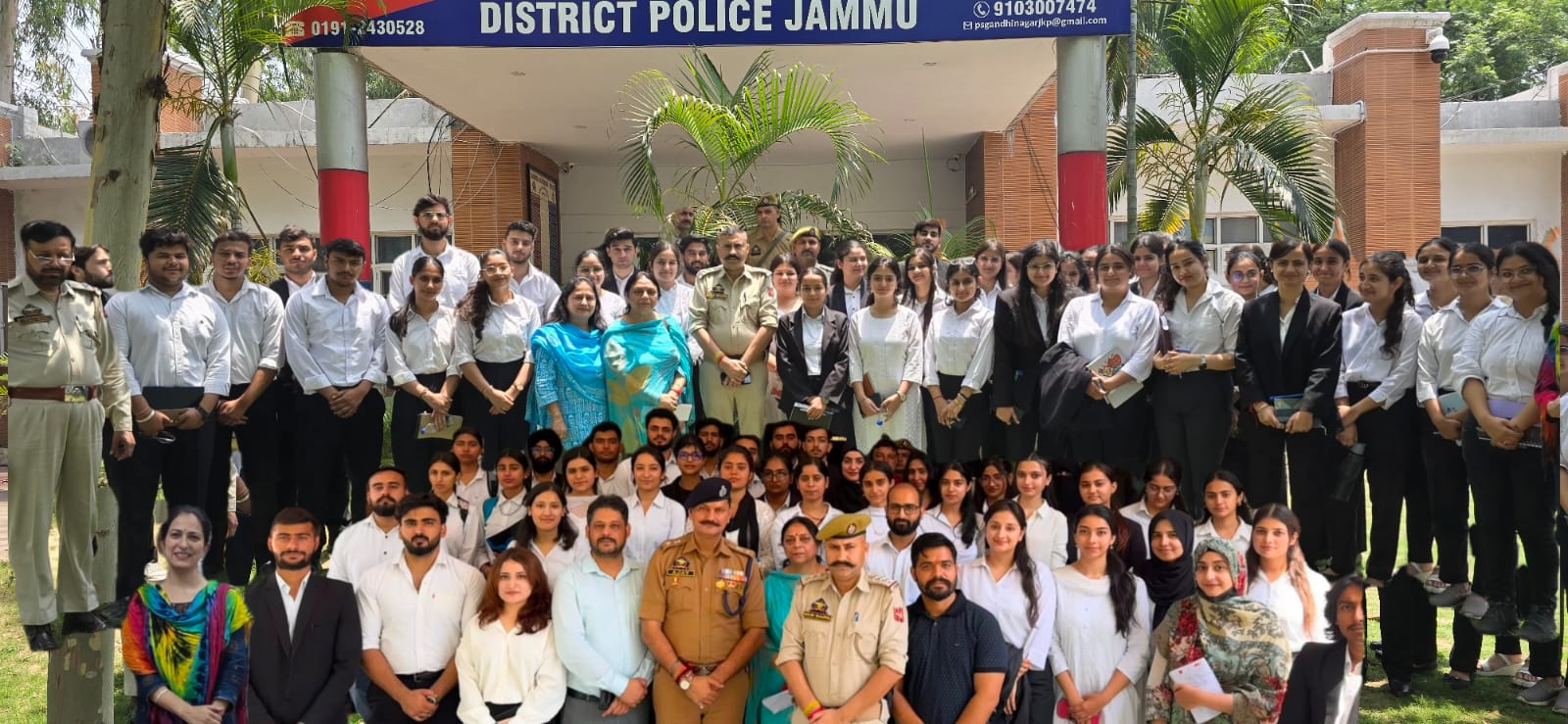About University

Cradled in the lap of mountains at the foothills of auspicious Trikuta, besides the river Tawi at an altitude of 1030 ft. is Jammu. This 'city of temples' has many places...
JU Law School Students Gain Hands-On Policing Insights Through Experiential Visit to Model & Women Police Stations

Jammu, 28 May – The Law School, University of Jammu, organized an immersive experiential learning visit for its students to the Model Police Station and Women Police Station in Gandhinagar, Jammu, deepening their understanding of law enforcement and criminal justice systems. The visit, organized for 6th-semester law students and PG Diploma (Human Rights & Duties Education) scholars, offered firsthand exposure to policing operations, aligning with the institution’s commitment to practical legal education.
During the visit, students toured the facilities and engaged with officers to learn about arrest protocols, investigative techniques, evidence handling, and community policing strategies. SHO Arun Sharma (Model Police Station) and SHO Aarti Thakur (Women Police Cell), along with investigation officers, provided insights into the application of criminal law, civil rights safeguards, and the evolving role of police in society. A key highlight was SP South Ajay Sharma’s session on technology-driven policing, including the Crime and Criminal Tracking Network System (CCTNS), procedural justice, and strategies to strengthen police-community relations. He emphasized the visit’s significance, stating, “Building bridges between law enforcement and future legal professionals is vital. These students will soon shape policies, defend rights, and collaborate with police in courts—understanding ground realities fosters better synergy and reform.”
Professor Seema Rohmetra, Director of The Law School, underscored the pedagogical value of the initiative: “Experiential learning is a cornerstone of legal education. By stepping out of classrooms and into spaces where law is enforced, students gain nuanced perspectives beyond textbooks. Such collaborations with the police empower them to advocate, litigate, and engage with the justice system more effectively.”
The visit was coordinated by faculty members under the supervision of Dr. Monica Narang and assisted by Dr. Monika Bhardwaj, Dr. Upasana Sharma, Dr. Rameh Kumar, and Dr. Nitan Sharma, reinforcing the institution’s emphasis on interdisciplinary, real-world learning.